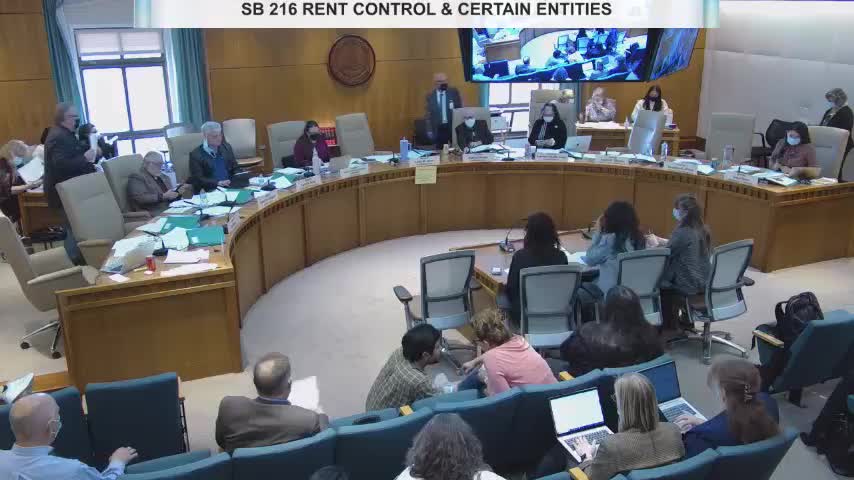Senate committee backs local option to consider rent control, 6–3; advocates and real‑estate groups clash
Get AI-powered insights, summaries, and transcripts
Subscribe
Summary
Senate Bill 216, which would repeal the state prohibition on local rent control and restore municipalities’ ability to consider rent‑stabilization measures, received a 6–3 due‑pass recommendation after passionate testimony from tenant advocates, veterans and housing activists and opposition from apartment owners, realtors and construction groups.
The Senate Health and Public Affairs Committee voted 6–3 to give Senate Bill 216 a due‑pass recommendation. The bill would repeal a 1991 statutory prohibition that prevents municipalities and counties from adopting rent‑control or rent‑stabilization measures affecting privately owned rental property.
What the bill does SB 216 does not impose rent control statewide. Instead, it removes the statewide ban so that local elected bodies could — if they choose — enact local ordinances or resolutions addressing rent increases or other rent‑stabilization measures. The sponsor and supporters described the measure as a local‑control bill that restores democratic authority to cities and counties.
Supporters’ arguments Speakers from grassroots groups and tenant organizations — including the People’s Housing Project, tenant unions and the League of Women Voters — told the committee rising rents and displacement require local tools. The measure’s supporters repeatedly said the bill preserves local decision making and does not mandate rent control; rather, it restores the option for localities to pursue protections matching local conditions. Veteran advocates and eviction‑prevention groups also testified in favor.
Opposition and concerns The bill drew strong opposition from the Apartment Association of New Mexico, the New Mexico Association of Realtors, Associated General Contractors and the Greater Albuquerque Chamber of Commerce. Opponents argued rent control discourages new development, reduces private investment in rental housing and can unintentionally worsen supply shortages. They cited examples from jurisdictions where rent‑control policies correlated with reduced new construction and development activity.
Vote and what’s next After roughly two hours of testimony and member discussion, the committee moved to recommend a due pass (6–3). The revised bill, if enacted, would allow municipalities and counties to consider their own rent‑stabilization laws; the specific content of any local ordinance would be left to local officials and public process.
